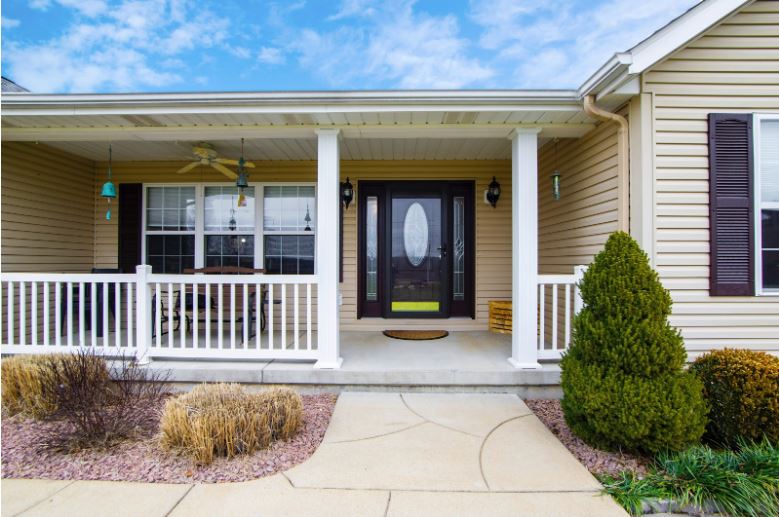
One of the factors that affect what your home insurance covers and its rates is the location. To learn more about location-based policies, look into the response rate of law enforcement and fire department response times in your area, what natural disasters it is prone to, and what precautionary measures you can take to minimize your risk (and your premium). You should also consider your type of property as this may affect the insurance, like if it’s a coach house with leasehold garages or has lodgers.
The policies can be far from easy-to-read, as the jargon makes it difficult to understand what the coverage entails. If you find the wording in homeowner’s insurance confusing, don’t worry, we’ll break it down for you in simpler terms.
Dwelling and Other Structures
One of the basic coverages of a homeowner’s insurance policy is dwelling protection, which protects the structure that you live in. Dwelling protection covers the main structure and other structures attached to the home, like a deck or garage. Coverage also includes structures separate apart from your dwelling, such as tool sheds, fences, and border walls.
Personal property protection covers items inside your home. This coverage can either pay or replace items if they are damaged or stolen under a covered risk.
By default, personal property covers actual cash value, but most insurance companies offer terms for replacement instead. ACV factors the age and condition of the insured possessions, while replacement can mean repairing or replacing objects similar to the item and of the same value.
Keep in mind that you may need separate coverage for jewelry and fine art if it surpasses the limit. To increase your limits, you might be able to add personal property endorsement on top of the current insurance.
Liability Protection
Liability coverage applies when a guest is injured on your property. It covers expenses from a lawsuit, medical expenses, or property damage involving the incident.
Property damage and injuries inflicted by pets are usually covered in the standard homeowner insurance. Remember, if there is a claim made about an incident, like a dog biting a neighbor, your premium will go up. Also, some insurers will exclude certain breeds, as they are proven to be more aggressive.
ALE is the total cost of being away from home after a disaster included in the policy strikes the house. Expenses while being away can consist of hotel bills and food needed while the home is being repaired or rebuilt.
Like many coverages, ALE also has a time limitation and amount available. If you rent from the home for rent, ALE also covers you for the money that you would have typically collected from your tenant.
What Perils Are Covered?
There is a set of perils that most homeowners’ policies cover. Standard Insurance Services Office (ISO) states that you are protected by the following hazards:
- Damage from natural disasters such as fire, lightning, windstorm, hail
- Damage caused by the weight of snow, ice, or sleet
- Explosion
- Destruction caused by external forces like riots
- Damage from aircraft or vehicles
- Smoke
- Theft or vandalism
- Falling objects
- Water or steam damage
- Tearing apart, cracking, burning or bulging of the structure
- Freezing of plumbing
- Electrical currents
- Volcanic eruption
What Does Homeowners Insurance Not Cover?
Regular homeowners insurance states what perils are and are not covered unless it is dwelling and other structures coverage. “Open perils” or “all risks” lists protect against everything unless it is specified on the list.
Not even the best homeowners insurance can cover everything. To receive coverage for these commonly excluded perils, you may need to purchase separate coverage.
- Earthquakes, landslides, sinkholes
- Water damage (i.e., flooding, waves, sewer backup, or groundwater)
- Power failure
- Neglect, mischievous acts or intentional loss
- Government ordinance or action
- War
- Nuclear hazard
- Birds, vermin, rodents, or insects
- Animals owned by an insured
- Mold, fungus, or wet rot
Summary
Getting familiar with home insurance policies is the best way to get the protection your home deserves. By knowing what is and isn’t covered in your homeowner’s insurance, you can take the proper steps to add more coverage and security measures where the main policies fall short.
___________________________________________________________
Interesting related article: “What is Personal Property Coverage?“
